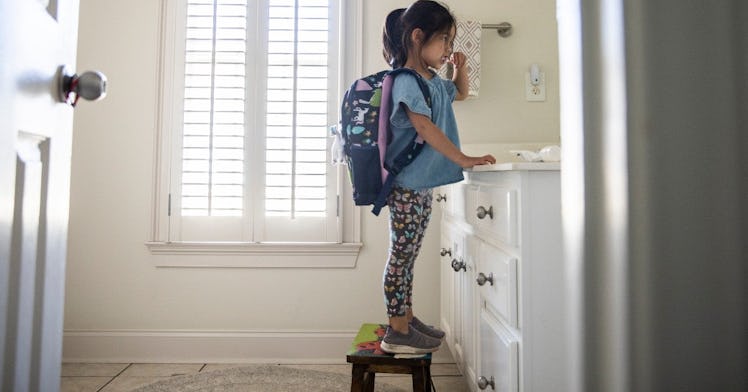68% of Americans Want Free Universal Child Care for Kids. What Gives?
Child care has increased in cost by 41 percent over pre-pandemic levels, and access has cratered.

People are beginning to return to the office, moving away from work from home arrangements and going back into the office a few days a week or even full time for those who were fortunate enough to work from their dining rooms during the pandemic. This “return to normal” has left some families in the lurch. Since the beginning of the Covid pandemic, child care costs have soared, leaving many families with few options and forcing many to decide for one parent to stay home to care for their children — in most households, that parent is the mother.
In the U.S., new data shows that childcare costs have increased by 41% from pre-pandemic levels to more than $14,000 per year on average, and many families pay as much as 20% of their take-home pay to provide care for their children. That cost has consequences. According to a recent report by the Committee for Economic Development, an arm of The Conference Board (CED), the overall number of mothers in the workforce has declined in recent years, suggesting a link between the ability to participate in the workforce and the availability of affordable childcare. A recent survey found from KinderCare, a national childcare company, found that 72% of Americans believe the government should somehow offset childcare costs for families, 68% believe the government should offer universal free childcare to all kids from birth to kindergarten, and 55% of parents said they would be willing to take a pay cut to work for a company that provided free childcare to employees.During the 2020 Presidential election, universal childcare made headlines as many Democrats named it an essential addition to the social safety net, and President Biden included improved access to affordable childcare in his landmark Build Back Better legislation. Though the BBB did not make it through the Senate, there are indications that the Biden Administration intends to address the crisis of expensive, inaccessible childcare not a moment too soon.As costs for everyday goods and services continue to rise due to record-breaking inflation gains, low- and middle-income families feel the strain.Research shows that as many as 64% of American families live paycheck to paycheck despite an increase in wages. “Wages are up 5.1 percent over the past year, which is trailing the pace of inflation,” Bankrate.com senior economic analyst Mark Hamrick told CNBC. “Indeed, surging prices are stealing the show on the minds of consumers.”Until the childcare crisis is solved, it’s unlikely that the financial predicament many families now find themselves in will resolve. And with many pandemic-era benefits having ended or closing in on their end dates, things will likely only get tougher until significant changes are made.